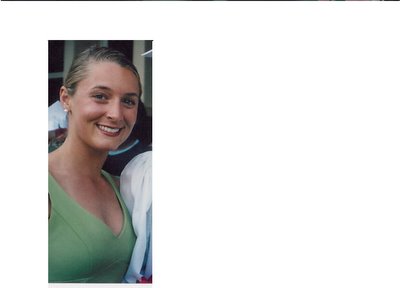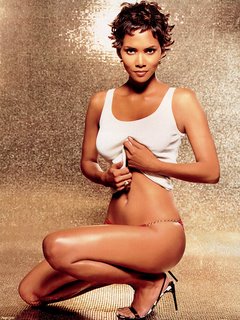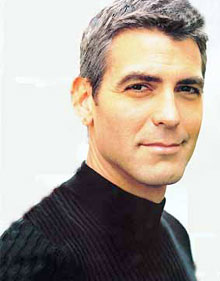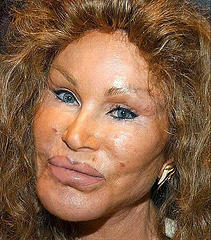THE "A" LIST
Can you offer a list of story points that I should consider after finishing my first draft?
___________________________________________________
Each story is its own fingerprint. Since each script has its own set of goals, it can be difficult to offer up a checklist to which all screenplays should subscribe. I think each screenplay has its very own unique checklist. However, there are certainly general points that can be considered. The problem with a checklist is that a clueless scribe will review it and mistakenly believe he has all points covered. By no means is a checklist any sort of cureall. Ultimately, the checklist must come from within - not without. Regardless, these are some general points that I look for when reading scripts.
CONCEPT
Is it a concept that immediately conveys a sense of conflict?
Is it a cinematic/visual concept?
Is it an intriguing concept?
Is it a concept with commercial appeal?
Is it a concept that could attract talent?
Does the script “write to its concept?” (Does it fully EXPLOIT the concept?)
Is it HIGH CONCEPT – story driven by concept?
Is it CHARACTER DRIVEN (slice-of-life) – story driven by character?
Is the concept true to its genre (conventions)?
PROTAGONIST
Does the hero have a memorable introductory scene?
Do we identify with the hero?
Do we empathize?
Sympathy? Jeopardy? Likeability? Humor? Power?
Does the hero have a GOAL?
External? Internal?
Both?
Is there HOPE & FEAR? (“Hope” the character will win, “fear” that he’ll lose?)
Is the hero actively pursing his goal?
Are there strong motives for the protagonist?
Is there a backstory? Is it woven skillfully (smoothly) into the unfolding storyline?
Is the hero challenged? (Challenge your character with his greatest fear?)
Is the protagonist’s internal life explored visually and dramatically?
Does the character change from the beginning of the story to the end? (Character arc?)
Does the character have “texture?” (Quirks, nuances and details.)
STORY
Is mood and tone successfully established?
Is concept explored through compelling conflict?
Are we hooked into the story by the end of the first act?
Is it fleshed out and explored through characters (behavior/moral choices) and conflict?
Is the character’s goal (the engine of the story) clearly expressed?
Is it introduced too early in the script? (Causing the story to run out of gas early?)
Is it introduced too late in the script? (Causing boredom early on in the story?)
Is there enough conflict? Is it compelling? Suspenseful? Credible?
Are there stakes/jeopardy? Are the stakes high enough?
Is there a sense of urgency?
Is the story well paced? Is there sufficient modulation? (Both highs and lows?)
Comic relief/ humor?
Does it avoid forced, artificial beats? Do the beats feel organic to the story?
Does it avoid contrivance and coincidence?
Does the story plant and pay-off?
Is there plenty of tension? Momentum? (Are you compelled to turn the page?)
Does it avoid repetition? (Tightly edited?)
Does it avoid cliché?
Is there an antagonist? Is his force equal to that of the hero?
Does antagonist have a goal? Is he three-dimensional? Does he have an arc?
Does the story hold its course (following the hero’s journey) or does it wander?
Is the world in which the story set believable, logical, and sensible?
Does it establish the “rules” of the world?
Does the story have a “cause and effect” flow? Each scene proceed logically to the next?
Does it raise questions? Anticipation? Superior position? Curiosity? Surprise?
Is EXPOSITION handled well? Evenly spread out through script?
Are the story’s key moments “earned?”
Is there a “romance?”
Do the sub-plots enhance the major storyline? Does sub-plot reveal theme?
Do the secondary characters support the hero? Add depth?
Do the major secondary characters have arcs?
Are there an efficient number of characters? (Too few, too many?)
Voice-over used effectively? (Does the story make sense without it?)
Does it build to the climax?
Are conflicts resolved?
Does the ending satisfy? Is it logical?
Does the antagonist receive a comeuppance commensurate with his actions?
Does it avoid a “deus ex machina?”
Do scenes start and end at the most effective points?
Does the story have “texture?” (Quirks, nuances and details.)
Is the overall experience "emotional? (Funny, scary, disturbing, powerful, sad, etc.?)
Is the story about something? Is there a "theme?"
STRUCTURE
Is the set-up well utilized? (Preparing audience for imminent dilemma?)
Important characters introduced early enough?
Is the first act efficient and effective?
Is the MAJOR DRAMATIC QUESTION clear?
Does the narrative maintain tension?
Is the hero responsible for pushing the story forward?
Are the plots points effective in providing the story with momentum?
Are “flashbacks” used to advance the story and/or raise questions?
DIALOGUE
Is it character specific? (Henry Higgins versus Eliza Doolittle)
Does it reveal character? Does it advance the story?
Does it set tone?
Does it avoid clunky exposition? Soliloquy? Monologue? Asides? Outright explanations?
Does it employ sub-text? (Not on-the-nose?)
Use visuals to enhance dialogue? Break up dialogue with pertinent action?
Does each line flow from previous line?
Does it avoid conversation?
Send questions and comments to theinsidepitch@sbcglobal.net
Any mail received to this account - including query letters and solicitations from Nigerian barristers - may be used for publication on this blog.






